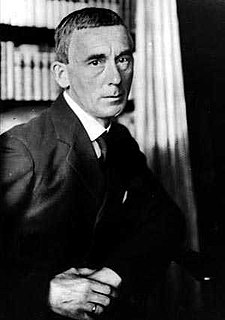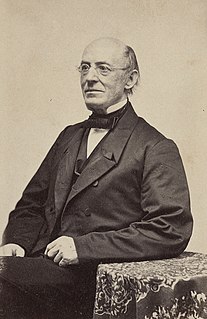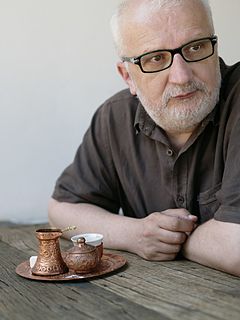A Quote by Jeff Bezos
Read the Declaration of Independence to your children as a tradition every Fourth of July. Make sure they understand why the word "pursuit" precedes the word "happiness."
Related Quotes
We are in love with the word. We are proud of it. The word precedes the formation of the state. The word comes to us from every avatar of early human existence. As writers, we are obliged more than others to keep our lives attached to the primitive power of the word. From India, out of the Vedas, we still hear: On the spoken word, all the gods depend, all beasts and men; in the world live all creatures...The word is the name of the divine world.
Each thing has its word, but the word has become a thing by itself. Why shouldn't I find it? Why can't a tree be called Pluplusch, and Pluplubasch when it has been raining? The word, the word, the word outside your domain, your stuffiness, this laughable impotence, your stupendous smugness, outside all the parrotry of your self-evident limitedness. The word, gentlemen, is a public concern of the first importance.
I was fascinated by the lack of a word for a parent who has lost a child. We have no word in English. I thought for sure there'd be a word in Irish but there is none. And then I looked in several other languages and could not find one, until I found the word Sh'khol in Hebrew. I'm still not sure why so many languages don't have a word for this sort of bereavement, this shadowing.
Every Fourth of July, our Declaration of Independence is produced, with a sublime indignation, to set forth the tyranny of the mother country and to challenge the admiration of the world. But what a pitiful detail of grievances does this document present in comparison with the wrongs which our slaves endure!
I like to be depressing. I feel it's my duty to make everyone a little less happy. You know that line in the Declaration of Independence, "the pursuit of happiness"? I've come to think that it has no meaning at all. You cannot pursue happiness. And to think that this bad little sentence has determined our lives.
"Both Christianity and Islam are logocentric," he told his students, "meaning they are focused on the Word. In Christian tradition, the Word became flesh in the book of John: 'And the Word was made flesh, and He dwelt among us. 'Therefore, it was acceptable to depict the Word as having a human form. In Islamic tradition, however, the Word did not become flesh, and therefore the Word needs to remain in the form of a word … in most cases, calligraphic renderings of the names of the holy figures of Islam."
The pursuit of happiness is enshrined in the Declaration of Independence as a right of all Americans, as well as on the self-improvement shelves of every American bookstore. Yet the scientific evidence makes it seem unlikely that you can change your level of happiness in any sustainable way. It suggests that we each have a fixed range for happiness just as we do for weight. And just as dieters almost always regain the weight they lose, sad people don't become lastingly happy, and happy people don't become lastingly sad.



































